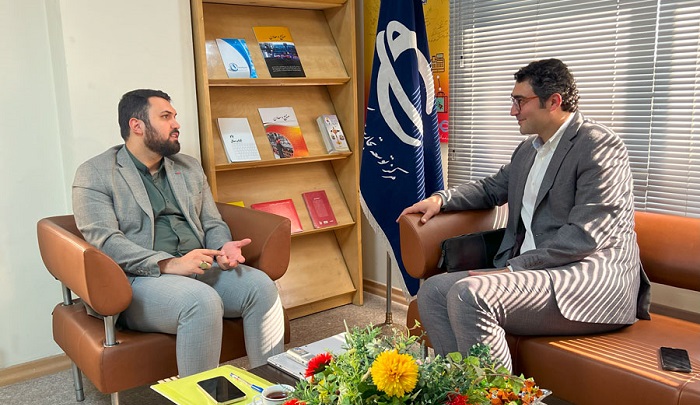E-commerce in Iran is expanding rapidly and has brought significant developments in the field of online shopping. However, e-commerce in Iran still faces challenges such as issues related to online payments, transportation, and laws and regulations that require attention and resolution
According to the Iran digital economy annotation, While the countries of the world have experienced a significant growth in their share of online retail sales from the offline market, Iran’s share is a very low figure of around 4%. This issue indicates that there is a significant gap with the world in this field, which shows that despite the high potential of e-commerce growth in Iran, it has not grown much in recent years.
One of the biggest obstacles in the country’s e-commerce development is attracting foreign investment and realizing numerous success stories in this field. E-commerce Development Center (Teta Center) has started a project called “E-commerce Sundays” since August 2023.
In this plan, every Sunday, Theta Center holds a meeting with the presence of one of the managers and experts of businesses in the field of digital economy with the aim of interaction, supporting entrepreneurship and developing knowledge-based businesses.
Farzin Fardis, CEO of Sarava Company and member of the board of directors of Tehran Chamber of Commerce, during the 13th meeting of this center, which was held on the 28th of November 2023, during a meeting with Farshad Zahed, head of the directorate and public relations office of the Electronic Commerce Development Center, discussed the digital economy.
At the beginning of this meeting, Zahed pointed out that we have 220,000 internet businesses in the country and said: “At Theta Center, we started the “E-commerce Sundays” project to open the center’s discourse for regulatory issues and challenges of startup ecosystem businesses.”
Pointing out that these meetings have gradually been welcomed by startups, Farshad Zahed said: “On behalf of the government, we are trying to see what we can do to help the ecosystem. On the 29th of August of this year, we started the first meeting, and today the 13th meeting is being held, during which we held a meeting with the CEOs of businesses such as Divar, Digikala, and stock brokers. We plan to hold these meetings in such a way that the position of Theta Center in the ecosystem is better known.”
In response to the question of what is the most important concern of Sarava now, Farzin Fardis, CEO of Sarava, stated: “If I want to talk about Sarava’s concern, our most important issue is “continuing growth”. At one time, with a hope, electronic commerce was formed in the country and they helped important things happen. But in the last few years, the growth rate seems to have slowed down. “If we can’t speed up the momentum again, I think the goals will not be achieved.”
The CEO of Sarava said about why e-commerce is important for the country: “In my opinion, one of the most important contributions of e-commerce to the country is the issue of “access justice”.
For example, the facilities of a big businessman are concentrated in Tehran or finally some big cities of the country. But we see that in an online platform, a seller or merchant can offer products throughout the country. When searching for users, a small business has the possibility to appear next to that merchant.
There are other possibilities such as installment and credit sales and returning goods in the online store platform. “The issue of justice is one of the values of our country, and if we want to help justice, one of the discussions is the development of electronic commerce.”
Fardis said: “The share of online to offline retail sales in Turkey is 20%, but in Iran it is 4%.”
According to Fardis, one of our problems in this existing gap is that there are many opaque chains in our country. He continued: “For example, when visiting the bazaar stores, it is not clear whether their goods came from a transparent route or not. Is it original or not? Instead of helping the government, the import tariff goes into the pockets of the same opaque chain. By the way, every policy we have made has fueled this issue.
We have not sought to promote official imports. E-commerce helps to make this chain transparent and traceable. If it is to be taxed or exempted, it can be properly allocated with e-commerce. 96% of the country’s retail sales are still physical and cannot be monitored. Naturally, there will be resistance against the transparent chain of e-commerce. This area does not need subsidies, but it needs to remove obstacles from its way.
Why is this not happening? I think because people are afraid of the unknown! We are really suffering from this problem in our country. We are afraid of things that we do not know. Instead of using the governing mechanisms, we stop its development. The result is that we get people’s motivation.”
In the continuation of this discussion, the CEO of Sarava stated: “For example, there has been talk of electricity production with solar energy in the country for several years now. But we still haven’t been able to allow people to realize this method properly; We fear the consequences, so those who took advantage of this took the opaque route. Well, let some people test this temporarily. At present, activists in this area have turned to neighboring countries.
The point is the same in e-commerce! We fear that these companies will become big, what will happen, what will happen to the data? We are afraid we cannot control. It is certain that the mechanism of these companies is disruptive and a new law is needed. This model of the country grows. “In some areas, the speed of change is so high that it was different a month ago than now.”
Fardis added: “Now the government says that I will stop the technology, because my manpower in the government cannot use it. For this problem, the world implements the “sandbox” solution and tests the technology. Government and businesses work together to regulate the space. The current world has moved towards the development of live commerce; For example, sales happen instantly on TikTok and T-Mal.
Referring to the fears that exist in this area, the CEO of Sarava said: “Because of the fears I mentioned, we will not allow this issue to develop in the country. Investors are afraid to put billions of money in this field but close it with a law and a circular. “It is true that there is no law, but it can be implemented in smaller periods.”
Fardis added: “I understand the security concern, but the development of the security view will upset the balance. “I think everyone should be around the decision-making table, not just the security perspective.”
He continued: “In my opinion, the most important task of the Theta Center is to solve these two issues: first, to change the model of governance from stoppage to controlled movement, and second, by creating a balance between the security and expert and development view, all this around the table. to be Do not look at each other. No one can shape this balance like the Ministry of Privacy.”
Farshad Zahed, head of the head office of Theta Center, said in the continuation of the meeting: “The lack of dialogue and the low presence of stakeholders in the government to solve the problem has caused the issue to not be properly conveyed to the government officials. We are trying to fix this deficiency.”
Fardis added: “Our biggest concern in Sarava is to help pave the way for several of our big startups to raise capital. Now it may be through IPO or off the stock market route. We see the path of great growth and development in the companies we are shareholders of, but the conditions are locked in such a way that they do not allow explosive growth. For example, in order to develop commodity processing centers in the country, we need capital.
Fardis concluded: “For example, two months ago China’s Alibaba invested 1.4 billion dollars in Turkey’s Trendul; It means 70 efforts. There is a need for private sector capital to enter this field. We see that we started with Turkey, but now one of their companies is equal to our entire ecosystem. “We could even enter the countries of the region so that high-quality Iranian goods can be sold in the region.”




No Comment! Be the first one.